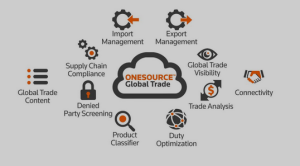Trade agreements play a significant role in shaping and influencing global supply networks. These agreements establish the terms and conditions under which countries engage in international trade, affecting the flow of goods, services, and investments. The impact of trade agreements on global supply networks can be observed through various mechanisms:

Trade Agreements and Global Supply Networks
-
Table of Contents
ToggleReduced Trade Barriers:
- Trade agreements often aim to reduce or eliminate trade barriers, such as tariffs and quotas, between participating countries.
-
Rules of Origin:
- Trade agreements typically define rules of origin, determining the criteria for a product to be considered as originating from a particular country.
-
Regional Integration:
- Regional trade agreements, such as free trade agreements (FTAs) and customs unions, promote regional integration by fostering closer economic ties among participating countries. This can lead to the development of regional supply networks, with countries specializing in certain stages of production.
-
Supply Chain Optimization:
- Trade agreements can prompt companies to optimize their supply chains based on the preferential trade terms available. This optimization may involve locating production facilities, sourcing materials, and distributing products in a way that maximizes the benefits of trade agreements.
-
Market Access:
- Access to new markets is a key consideration for businesses when establishing and expanding global supply networks.
-
Harmonization of Standards:
- Some trade agreements include provisions for the harmonization of standards and regulations. This can simplify cross-border trade by reducing the need for product modifications and compliance assessments, leading to more seamless integration of supply networks.
-
Trade Facilitation Measures:
- Trade agreements often include provisions for trade facilitation, such as streamlined customs procedures and reduced administrative burdens. These measures contribute to the efficiency of supply chains by minimizing delays and transaction costs.
-
Risk Diversification:
- Companies may use trade agreements as a strategy for risk diversification in their supply chains. By operating in multiple countries that have established trade agreements, businesses can mitigate risks associated with geopolitical uncertainties or changes in trade policies.
-
Technology Transfer:
- Trade agreements can facilitate the transfer of technology and knowledge across borders. This technology transfer may enhance the capabilities of suppliers and partners within the supply network, contributing to innovation and increased competitiveness.
-
Sustainability Considerations:
- Some modern trade agreements address sustainability issues, encouraging environmentally and socially responsible practices. This can influence supply chain decisions, prompting companies to adopt sustainable sourcing and production practices.
-
Dispute Resolution Mechanisms:
- Trade agreements often include mechanisms for resolving trade disputes. The existence of transparent and reliable dispute resolution processes can contribute to the stability and predictability of global supply networks.
In summary, trade agreements play a pivotal role in shaping global supply networks by influencing trade dynamics, market access, and the structure of production and distribution processes. As businesses navigate the complex landscape of international trade, an understanding of trade agreements and their implications is crucial for optimizing supply chain strategies.
